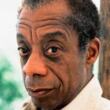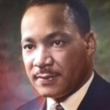The new Negro: the life of Alain Locke
Description
More Details
9781977310125
019508957
Table of Contents
From the Book
Subjects
African American college teachers -- Biography
African American intellectuals -- Biography
African American philosophers -- Biography
African Americans -- Intellectual life
Biography & Autobiography
Harlem Renaissance
History
Locke, Alain, -- 1885-1954
Locke, Alain, -- 1885-1954 -- Political and social views
Nonfiction
Sociology
Similar Titles From NoveList
Similar Authors From NoveList
Published Reviews
Booklist Review
*Starred Review* Stewart, professor of black studies at the University of California, Santa Barbara, presents a definitive biography of an intellectual who philosophically helped shape the Harlem Renaissance, Alain Locke (1885-1954). Stewart writes about the direct and indirect influences Locke had on the lives of many writers and artists of that dynamic, world-changing era, including Langston Hughes, Zora Neale Hurston, Richmond Barthé, and others. Stewart traces Locke's life, from his birth into a black bourgeoisie family struggling to hold onto its class standing and reputation to his formative years under the overprotective and dominating rigor of his mother to his years at Harvard, where he received his doctorate in philosophy. The first African American to be named a Rhodes Scholar, in 1907, Locke went on to study in Oxford, where Stewart describes Locke's first taste of academic failure. Stewart documents, with extensive use of primary sources, the highs and lows in Locke's life, his extensive world travels, his long professional teaching career at Howard University, and his personal life as a closeted homosexual. Those who love biographies or reading about important yet undercelebrated Americans will enjoy Stewart's comprehensive, richly contextualized portrait of a key writer, educator, philosopher, and supporter of the arts.--Jackson-Brown, Grace Copyright 2018 Booklist
Publisher's Weekly Review
Stewart (Paul Robeson: Artist and Citizen) offers a detailed, definitive biography of Alain LeRoy Locke (1885-1954), the godfather of the Harlem Renaissance and all around "renaissance man in the finest sense... a man of sociology, art, philosophy, diplomacy, and the Black radical tradition." A Harvard graduate with a Ph.D. in philosophy, Locke became the first black Rhodes Scholar, studying in England and Germany; Stewart chronicles those travels as well as Locke's travels in Egypt, Haiti, and the Sudan. The book also explores Locke's personal life as a gay man who was attracted to the young intellectuals who inspired him, including sculptor Richmond Barthé and poet Langston Hughes. Stewart details Locke's misogyny toward writers Jessie Fauset and Zora Neale Hurston, as well as his complicated relationships with W.E.B. Du Bois and his Howard colleagues, who resented Locke's influence. Stewart creates a poignant portrait of a formidable yet flawed genius who navigated the cultural boundaries and barriers of his time while nurturing an enduring African-American intellectual movement. (Feb. 2018) © Copyright PWxyz, LLC. All rights reserved.
Kirkus Book Review
A magisterial biography of the 20th-century philosopher, curator, and prime mover of the Harlem Renaissance.Alain Locke (1885-1954) is a criticaland complexfigure in any discussion of African-American intellectual history. In his youth, he was the quintessential black Victorian, impeccably dressed and mannered, as if comportment alone could conquer racism. That posturing made him blinkered at times; he tried to deny the prejudice he experienced as a Rhodes scholar and would later submit to a wealthy patron's condescending celebration of black "primitivism" for the sake of financial support. But Locke also wrote forcefully about the value of black artists and advocated strongly for writers like Jean Toomer and Langston Hughes. He edited the landmark 1925 issue of Survey Graphic, which put Harlem on the map as black America's artistic center, argued for black artists' central place in American culture in his selections for the book The New Negro, and curated African art exhibits that persuasively fitted that work within modernism. Stewart (Black Studies/Univ. of California, Santa Barbara; Paul Robeson: Artist and Citizen, 1998, etc.) often frames his subject's life as a series of one-on-one conflicts: with his mother, whose apron strings he found hard to untangle himself from; with more vocal black activists like W.E.B. Du Bois, who wanted more from a racial movement than Locke's oft-aloof aestheticism; with institutions like Howard University, which had a hot-and-cold relationship with him; and with the lovers the closeted gay, peripatetic Locke endlessly pursued, not to mention writers like Hughes who rejected his advances. This hefty, deeply researched book is sometimes overwhelming in its detail about Lockeevery letter he wrote seems to be quotedbut it brilliantly doubles as a history of the philosophical debates that girded black artistic triumphs early in the 20th century.A sweeping biography that gets deep into not just the man, but the movements he supported, resisted, and inspired. Copyright Kirkus Reviews, used with permission.
Booklist Reviews
*Starred Review* Stewart, professor of black studies at the University of California, Santa Barbara, presents a definitive biography of an intellectual who philosophically helped shape the Harlem Renaissance, Alain Locke (1885–1954). Stewart writes about the direct and indirect influences Locke had on the lives of many writers and artists of that dynamic, world-changing era, including Langston Hughes, Zora Neale Hurston, Richmond Barthé, and others. Stewart traces Locke's life, from his birth into a black bourgeoisie family struggling to hold onto its class standing and reputation to his formative years under the overprotective and dominating rigor of his mother to his years at Harvard, where he received his doctorate in philosophy. The first African American to be named a Rhodes Scholar, in 1907, Locke went on to study in Oxford, where Stewart describes Locke's first taste of academic failure. Stewart documents, with extensive use of primary sources, the highs and lows in Locke's life, his extensive world travels, his long professional teaching career at Howard University, and his personal life as a closeted homosexual. Those who love biographies or reading about important yet undercelebrated Americans will enjoy Stewart's comprehensive, richly contextualized portrait of a key writer, educator, philosopher, and supporter of the arts. Copyright 2018 Booklist Reviews.
Publishers Weekly Reviews
Stewart (Paul Robeson: Artist and Citizen) offers a detailed, definitive biography of Alain LeRoy Locke (1885–1954), the godfather of the Harlem Renaissance and all around "renaissance man in the finest sense... a man of sociology, art, philosophy, diplomacy, and the Black radical tradition." A Harvard graduate with a Ph.D. in philosophy, Locke became the first black Rhodes Scholar, studying in England and Germany; Stewart chronicles those travels as well as Locke's travels in Egypt, Haiti, and the Sudan. The book also explores Locke's personal life as a gay man who was attracted to the young intellectuals who inspired him, including sculptor Richmond Barthé and poet Langston Hughes. Stewart details Locke's misogyny toward writers Jessie Fauset and Zora Neale Hurston, as well as his complicated relationships with W.E.B. Du Bois and his Howard colleagues, who resented Locke's influence. Stewart creates a poignant portrait of a formidable yet flawed genius who navigated the cultural boundaries and barriers of his time while nurturing an enduring African-American intellectual movement. (Feb. 2018)
Copyright 2017 Publishers Weekly.






























